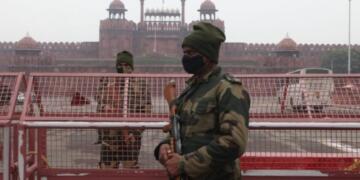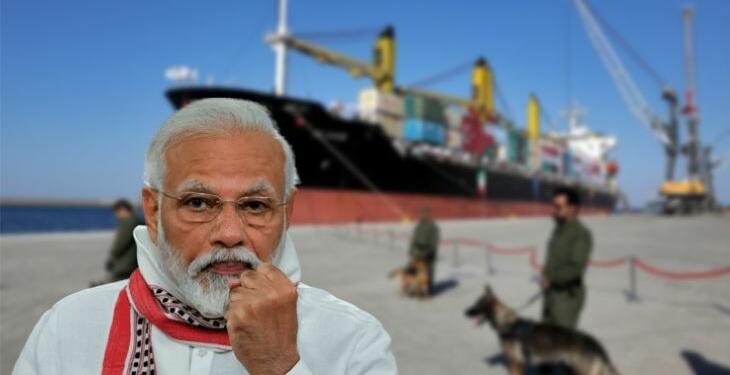As the 12-day Iran-Israel conflict sent shockwaves across West Asia and raised fears of a broader war, India’s multi-million-dollar investment in Iran’s Chabahar Port remained unscathed. Located on Iran’s southeastern coast, Chabahar was untouched by the missile and drone strikes that marked the conflict, even as nearby regions braced for the worst.
This uninterrupted functionality stood in stark contrast to Pakistan’s China-backed Gwadar Port, just 170 km away, which faced indirect operational disruptions during the same period. The developments have reignited debate over regional port strategy, trade connectivity, and the impact of diplomacy on infrastructure security.
Why Chabahar Matters to India
Chabahar Port plays a pivotal role in India’s regional strategy. With an estimated investment of $550 million, India has developed the Shahid Beheshti terminal, extended credit for port expansion, and supported the construction of the Chabahar-Zahedan railway to improve trade access to Afghanistan and Central Asia.
Chabahar serves as a direct gateway for India to landlocked regions, bypassing Pakistan entirely. It also acts as a strategic counterweight to the China-Pakistan Economic Corridor (CPEC) and the Gwadar Port, which China has been developing under its Belt and Road Initiative.
Even during the conflict, Chabahar remained fully operational. Port activities continued as usual, with no reported disruption, making it a rare stable outpost in an otherwise volatile theatre of war.
Gwadar Faces Indirect Impact of Conflict
While Gwadar was not targeted militarily during the Iran-Israel war, Pakistan’s internal decisions led to a partial blockade of activity. On June 15, Islamabad shut down several border crossings with Iran in Balochistan including those near Gwadar, such as Gabd-Rimdan citing security concerns.
This disrupted the flow of smuggled Iranian oil and strained local supply chains. Reports from the region suggested shortages of essential goods in the Gwadar district. Although port operations officially continued, the broader trade ecosystem around it suffered, raising questions about the port’s resilience in times of geopolitical instability.
In contrast, Chabahar’s functionality reflected not just strong infrastructure but also robust diplomatic safeguards.
Modi Government’s Diplomatic Balancing Act
India’s non-aligned yet engaged approach to the Iran-Israel war was crucial in keeping Chabahar safe. On June 13, 2025, Prime Minister Narendra Modi spoke with Israeli Prime Minister Benjamin Netanyahu, likely discussing the conflict’s regional implications. The same day, External Affairs Minister S. Jaishankar held a phone call with Iranian Foreign Minister Abbas Araghchi, urging calm and de-escalation.
Later, PM Modi personally spoke with Iran’s President Masoud Pezeshkian to reinforce India’s neutral stance and advocate for diplomatic resolution. This careful outreach allowed India to preserve bilateral trust on both sides.
The result: Chabahar, a vital Indian interest on Iranian soil, was never seen as a target by any party in the conflict. Remarkably, even the Haifa Port in Israel where India’s Adani Group holds a stake remained functional despite nearby missile strikes and damage to a local refinery. In both cases, Indian interests stayed protected.
Diplomacy Backed by Strategy
India’s ability to shield its overseas infrastructure investments during a high-stakes regional war demonstrates the strength of its foreign policy under the Modi government. Chabahar’s uninterrupted functioning amid an active conflict zone is a testament to both strategic foresight and diplomatic agility.
Pakistan’s Gwadar Port, despite being outside the immediate conflict zone, faced logistical hurdles due to internal border closures. The contrast between the two ports highlights the difference in planning, international outreach, and execution.
As global trade routes face increasing disruption due to geopolitical tensions, India’s success in protecting Chabahar underscores the importance of securing overseas investments not just with capital but with diplomacy.























